Revamping Your Space: A Comprehensive Guide to Navigate the Costs of Home Floor Remodeling and Financing Options
With careful planning and smart decisions, you can create a beautiful new floor that fits within your budget. The goal is to strike a balance between quality and cost.
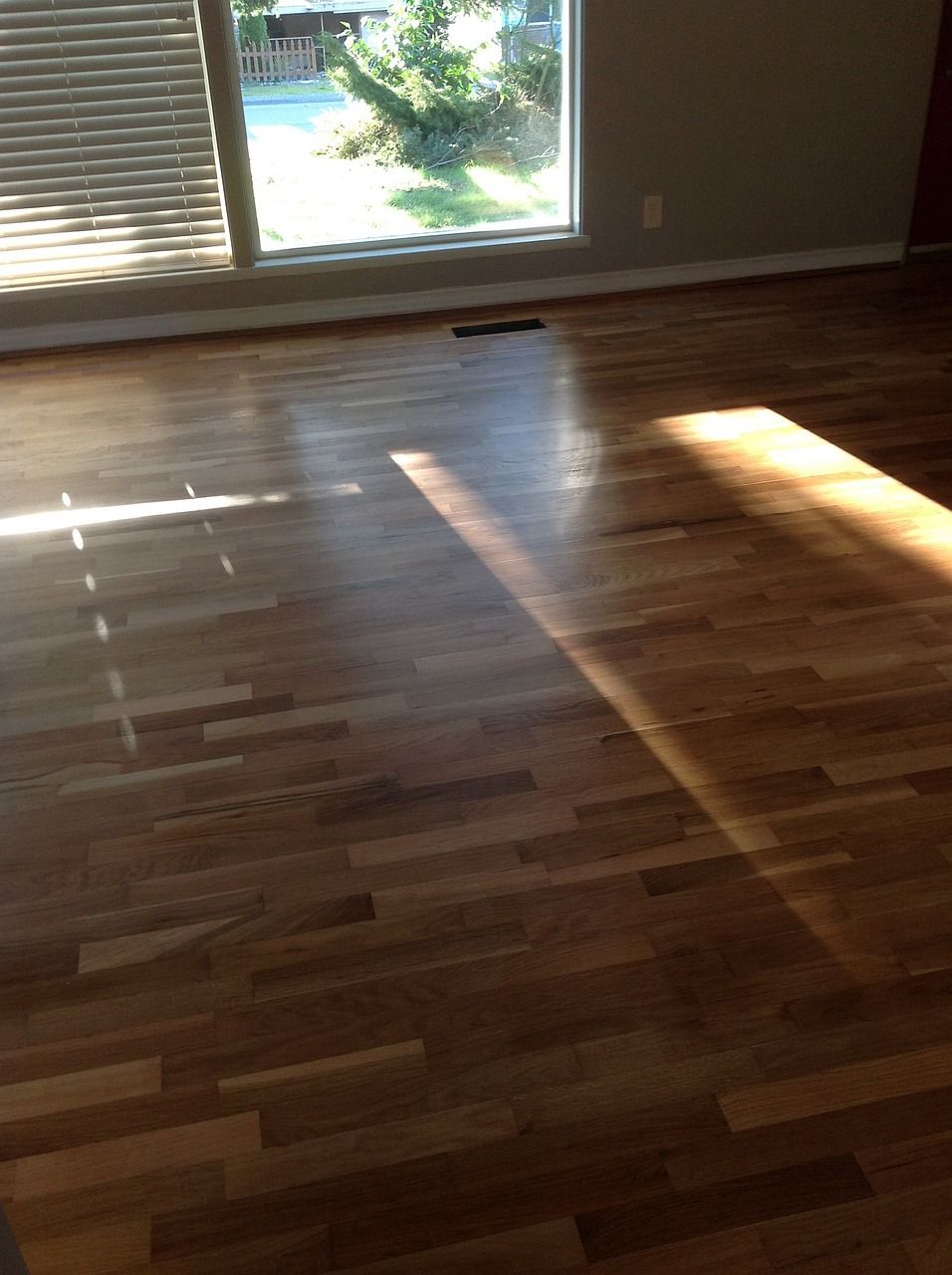
Embarking on a home floor remodeling project is both an exciting and challenging endeavor. It's a chance to breathe new life into your space, adding value and personality to your home. However, understanding the intricacies of "Home Floor Remodeling" is crucial to ensure a smooth and efficient renovation journey.
This involves a keen awareness of the costs involved, a well-planned budget, and a strategic approach to financing the project. Whether you're looking to upgrade your hardwood floors to a more modern look, or you're considering a shift to eco-friendly bamboo or cork, each decision you make will significantly impact the overall costs. Our comprehensive guide aims to help you navigate these complexities, empowering you with the knowledge you need to make informed financial decisions for your home floor remodeling project.
Let's dive into the world of home floor remodeling and explore how you can revamp your space while effectively managing your budget.
The Basics of Home Floor Remodeling
Home Floor Remodeling is a substantial project that not only enhances the aesthetic appeal of your home but also boosts its overall value. The right flooring can transform your space, making it more comfortable, functional, and attractive. It's a great opportunity to inject your personal style into your home, whether you prefer the timeless elegance of hardwood, the cozy warmth of carpet, or the sleek modernity of tiles.
However, a successful "Home Floor Remodeling" project requires careful planning and execution. One of the biggest challenges homeowners face is managing the costs associated with flooring materials and installation. Additionally, unexpected issues such as subfloor repairs or delays can add to the overall expense and timeline of the project.
Another challenge is choosing the right flooring type that suits your lifestyle and budget, while also considering factors like durability, maintenance, and aesthetic appeal. It's essential to take into account the room's usage, foot traffic, and the home's overall design theme.
Despite these challenges, with the right approach and resources, you can navigate the home floor remodeling process with confidence, creating a space that is not only beautiful but also financially smart.
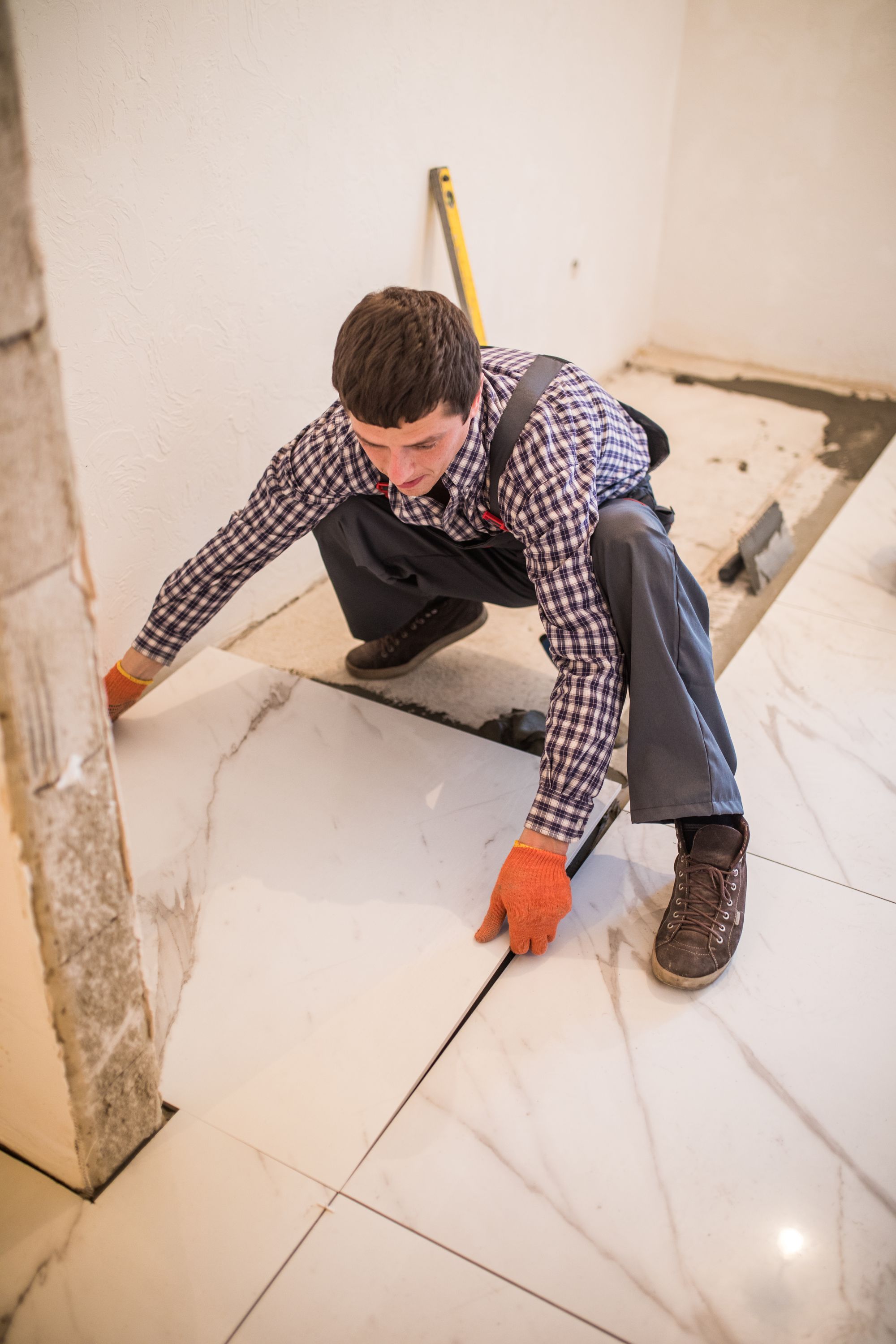
Understanding the Costs of Home Floor Remodeling
Embarking on a home floor remodeling project is an exciting journey, but it also requires a solid understanding of the costs involved. From labor charges to material expenses and unforeseen costs, each factor plays a vital role in the overall "Costs of Home Floor Remodeling".
1. Labor Costs
Labor costs are a major part of the total expenses incurred during a home floor remodeling project. They can range from 50% to 75% of the overall costs, depending on the complexity of the job and market rates.
For a basic floor installation, you could expect labor costs to range between $3 to $10 per square foot. More complex installations, such as intricate tile patterns or hardwood flooring, could increase labor costs up to $15 per square foot or more.
If your subfloor requires repairs or leveling, additional labor charges will apply, potentially adding another $500 to $1000 to your project cost.
The removal and disposal of your old floor can also contribute to labor costs, typically adding around $2 to $5 per square foot.
Keep in mind these are rough estimates, and actual costs may vary based on your location and the flooring contractors' specific rates. It's always wise to obtain multiple quotes to ensure you're getting a fair price.
2. Material Costs
Material costs are a significant portion of any home floor remodeling project, often accounting for around 25% to 50% of the total budget. The cost varies greatly depending on the type of flooring material you choose.
Laminate flooring, one of the most economical options, typically costs between $1 to $5 per square foot. Vinyl flooring ranges from $2 to $8 per square foot, offering a wide variety of styles and designs.
Hardwood flooring is a more premium choice, with standard species ranging from $5 to $10 per square foot, and exotic woods costing $14 or more per square foot.
Tile flooring can vary even more drastically, with basic ceramic tiles costing as little as $1 to $3 per square foot, and high-end materials like marble or travertine ranging from $15 to $20 or more per square foot.
Remember, these are just material costs and do not include installation or potential subfloor repair costs.
3. Unexpected Expenses
Unexpected expenses during a home floor remodeling project can quickly accumulate, impacting your total budget. It's advisable to set aside an additional 10%-20% of the total project cost to cover these unforeseen costs.
One common unexpected cost is subfloor repair. If your subfloor is damaged, it may need to be repaired or replaced before new flooring can be installed. This can add anywhere from $500 to $1000 or more to your project cost.
Addressing mold, mildew, or pest issues are other potential unexpected costs. Depending on the severity of the problem, professional remediation could cost anywhere from $500 to $3000.
Lastly, delays can also contribute to unexpected expenses. Whether it's waiting for backordered materials or dealing with scheduling conflicts, delays can extend the project timeline, increasing labor costs and potentially adding extra living expenses if you have to vacate your home during the remodeling process.
4. Maintenance and Lifetime Costs
While not an immediate cost, considering the ongoing maintenance and life expectancy of your chosen flooring material is important
Maintenance and lifetime costs are crucial factors to consider when undertaking any home improvement project, such as floor remodeling. Maintenance costs refer to the expenses associated with keeping your new flooring in good condition. This can include regular cleaning, repairs, or replacement of damaged parts.
Lifetime costs, on the other hand, refer to the total expenses incurred over the lifespan of the flooring. This includes the initial installation cost, maintenance, and eventual replacement. Different types of flooring materials have different lifespans and associated costs. For example, hardwood floors may require more maintenance but can last for generations, while carpet may need to be replaced every 10 years.
It's essential to consider these costs when planning your project to ensure it's not just affordable upfront, but also over the long term.
5. Other Costs
Permit fees, waste removal, and cleanup costs can also add to the overall expense of a home floor remodeling project. It’s also wise to factor in the cost of living arrangements if you need to vacate your home during the remodel.
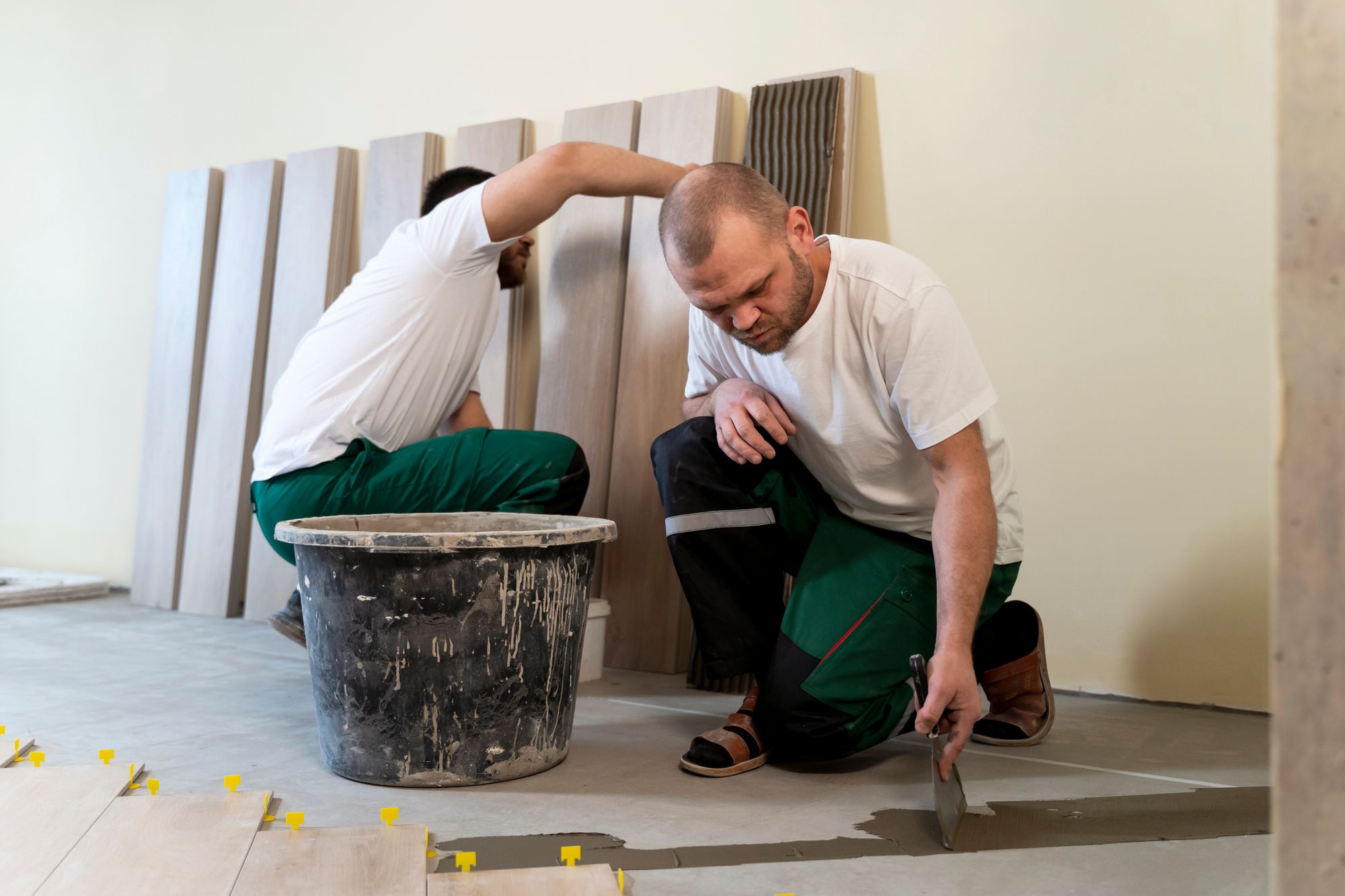
Estimated Total Cost Implication
Based on what we just showed, here's simple breakdown of the costs associated with different types of home floor remodeling projects:
1. Hardwood Floor Installation
Hardwood floors are a popular choice for their durability and timeless appeal. The average cost for installing hardwood floors ranges from $6 to $12 per square foot, including labor and materials. For exotic or high-end woods like walnut or mahogany, this cost can rise to $14 per square foot or more.
2. Laminate Flooring
Laminate flooring is a cost-effective alternative to hardwood, offering a similar look for less. Installation costs typically range from $3 to $7 per square foot, including labor and materials.
3. Tile Flooring
Tile flooring can vary widely in cost depending on the type of tile chosen. Ceramic tile installation typically ranges from $7 to $14 per square foot. Porcelain tile, a more durable and water-resistant option, can cost between $9 and $20 per square foot.
4. Carpet Installation
Carpeting is often chosen for its softness and warmth. The cost of carpet installation can range from $3 to $5 per square foot, with high-end or specialized materials like wool or Berber carpet costing up to $10 per square foot.
5. Vinyl or Linoleum Flooring
Vinyl or linoleum floors are a budget-friendly choice, particularly suitable for areas like kitchens or bathrooms. Installation costs for these materials typically range from $2 to $8 per square foot.
Remember, these costs are averages and can vary greatly depending on factors like the specific materials chosen, the complexity of the installation, and regional labor costs. It's also crucial to consider additional costs like removing the old flooring, repairing subfloors, or baseboard and trim installation. Always obtain multiple quotes to ensure you're getting the best price for your project.
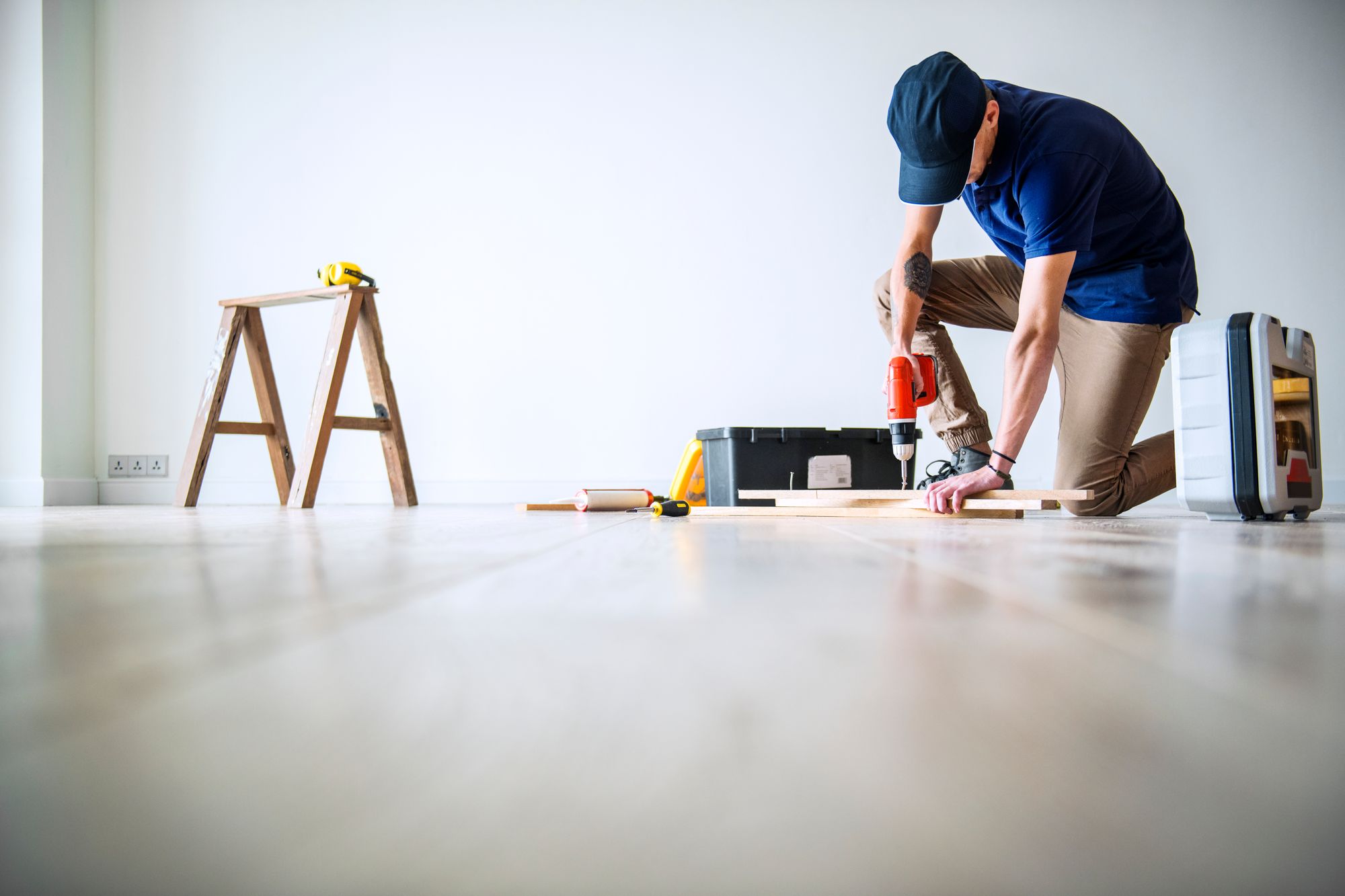
Exploring Financing Options for Home Floor Remodeling
Embarking on a home floor remodeling project is not just about choosing the right materials and workers; it's also about figuring out the best way to finance the project. Here, we will explore different financing options to help you make an informed decision.
1. Savings
If you have been diligent about setting money aside, using your savings can be the most cost-effective way to finance your remodeling project. This method allows you to avoid the interest and fees associated with loans and credit cards. However, it's essential to ensure that using your savings won't leave you financially vulnerable to unexpected emergencies.
2. Personal Loans
Personal loans are a popular option for financing home improvement projects. They typically offer lower interest rates than credit cards and have a fixed repayment schedule, making it easier to budget for the repayment. You can get personal loans from banks, credit unions, or online lenders. However, your credit score, income, and debt-to-income ratio may affect your eligibility and the interest rate you receive.
3. Home Equity Loans or Home Equity Line of Credit (HELOC)
These are loans against the equity you have built up in your home. Home equity loans offer a lump sum at a fixed interest rate, while a HELOC provides a line of credit you can draw from as needed. These options often have lower interest rates than personal loans or credit cards. Plus, the interest you pay may be tax-deductible if the loan is used for significant home improvements. But remember, your home is the collateral, so if you fail to make payments, you could risk losing your home.
4. Credit Cards
Using credit cards can be a viable option if the renovation cost is relatively low, or if you can take advantage of a 0% APR introductory offer. However, credit cards generally have higher interest rates than other financing options, so they can be costly if you're unable to pay off the balance quickly.
5. Contractor Financing
Some contractors offer financing options, either through a partner lender or in-house. This can be convenient as you can streamline your project costs and financing into one package. However, you should compare these rates to other available options to ensure you're getting the best deal.
When considering these financing options, "Financial Tips for floors remodeling" suggest evaluating the cost of the loan, including the interest rate, fees, and loan term, and compare these against your monthly budget and long-term financial goals. Remember, it's crucial to choose a financing option that you can comfortably afford to repay, so you can enjoy your new floor without financial stress.
SimpleDirect's Approach to Home Floor Remodeling
SimpleDirect plays a significant role in aiding your floor remodeling project by providing a platform to compare different financial options. Whether you're considering a personal loan, home equity loan, or credit card, SimpleDirect offers a simple and efficient way to compare rates and terms from various lenders. This way, you can make an informed decision that best suits your financial situation and remodeling budget.
In addition, SimpleDirect's assortment of financial resources and tips can help guide you through the financing process, ensuring you have all the necessary tools to finance your floor remodeling project effectively.
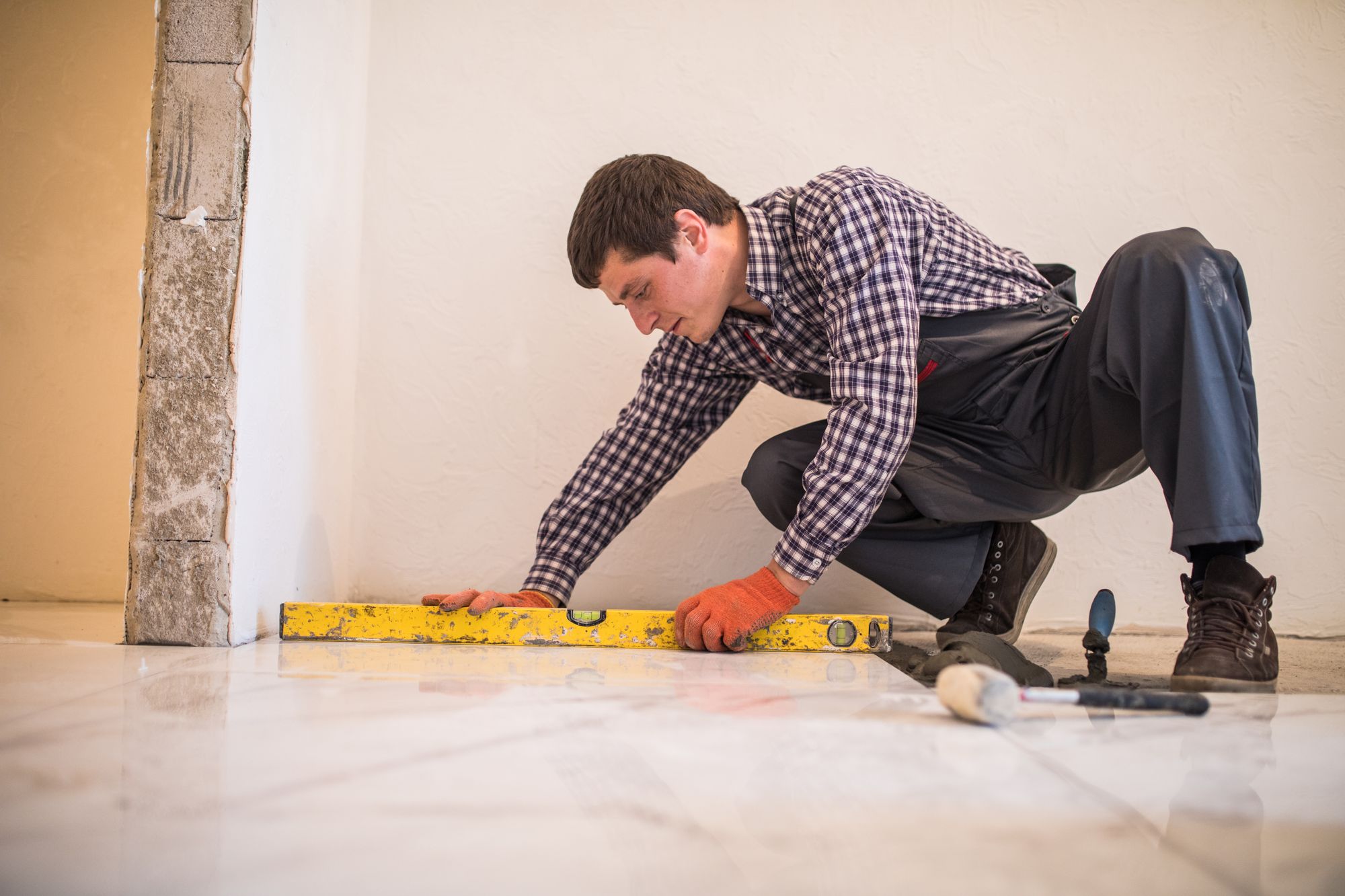
Money-Saving Tips for Home Floor Remodeling
Home floor remodeling can be a significant investment, but there are ways to save money without sacrificing quality. Here are some practical "Financial Tips for floors remodeling".
1. Plan Ahead
Careful planning can help avoid expensive changes mid-project. Make sure you know exactly what you want before work begins to help minimize unexpected expenses.
2. Do Some Work Yourself
If you're handy, consider doing some of the work yourself. Tasks such as removing the old flooring can save significant labor costs. However, remember that professional installation can often lead to better and quicker results, so weigh the pros and cons carefully.
3. Choose Materials Wisely
You don't always have to opt for the most expensive materials. For instance, luxury vinyl tile can mimic the look of hardwood or natural stone at a fraction of the cost. Shop around, compare prices, and consider alternatives.
4. Buy in Bulk
If you're remodeling multiple rooms, consider buying materials in bulk to take advantage of volume discounts.
5. Time Your Project
Contractors often offer discounts during their off-peak seasons. If you can wait, you might be able to save on labor costs.
In conclusion, understanding the potential costs of home floor remodeling, including unexpected expenses, is crucial. Exploring various financing options such as savings, loans, or credit cards can help manage these costs effectively. Implementing money-saving strategies and following financial tips for floors remodeling can further ensure a successful project that doesn't break the bank.
Ready to start your home floor remodeling project? Leverage the financial insights and tips shared in this article to plan effectively. With SimpleDirect, you can compare loan options and make informed decisions that best suit your budget. Start your journey towards a beautifully remodeled floor with SimpleDirect today!

